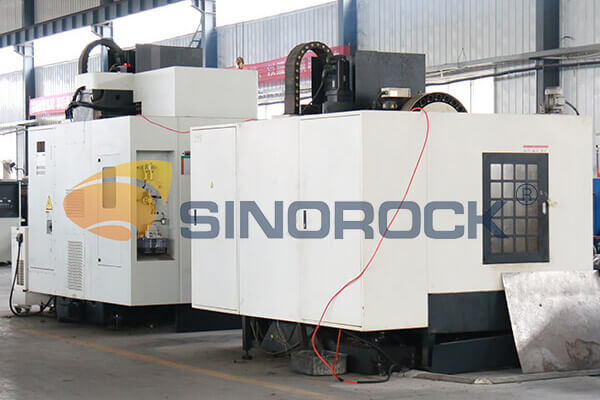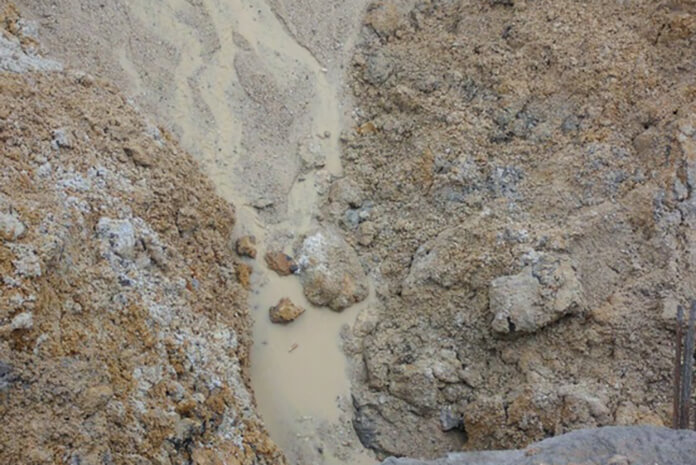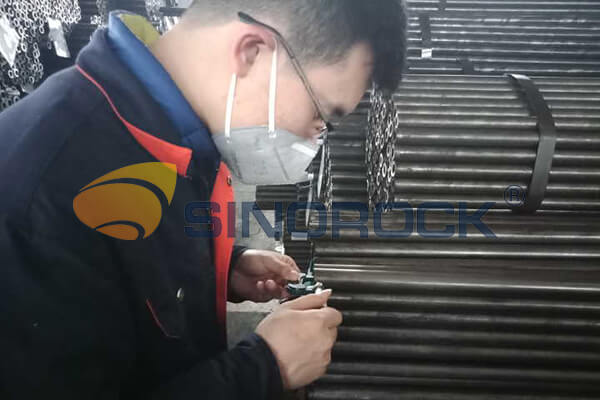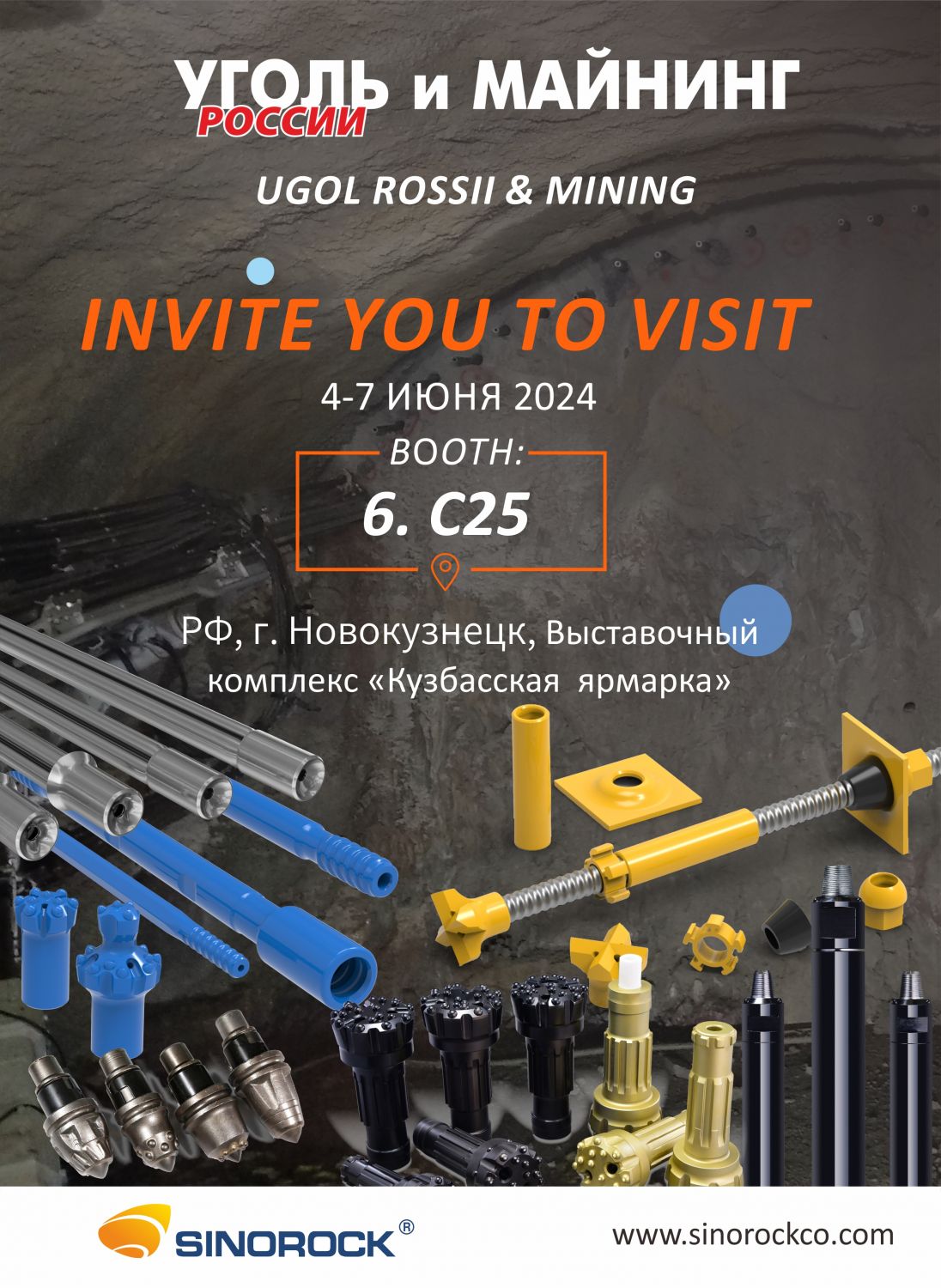What Are Rock Anchor Bolts?
Time:2024-05-15From:sinorock View:
I. Introduction
In the realm of construction and civil engineering, rock anchor bolts play a pivotal role in ensuring structural integrity and stability. These essential components serve as the connective tissue between buildings, structures, and the ground they rest upon. As innovations continue to drive the construction industry forward, hollow rock anchor bolts emerge as a versatile and robust solution for various geotechnical challenges.

II. Understanding Hollow Rock Anchor Bolts
A. Definition and Composition
Hollow rock anchor bolts represent a fusion of engineering ingenuity and geological insight. Comprising threaded hollow bars, drill bits, plates, nuts, centralizers, and optionally couplers, these anchor bolts are meticulously designed to withstand substantial loads while offering ease of installation. The threaded hollow bars come in two primary variations: R thread, also known as rope thread or wave thread, and T thread, which combines curved and flat surfaces. The continuous nature of these threads ensures enhanced structural integrity and load-bearing capacity.

B. Different Types and Variations
The versatility of hollow rock anchor bolts manifests in their adaptability to diverse geological conditions and project requirements. R thread hollow bars typically range from 25mm to 51mm in diameter, while T thread variants span from 30mm to 200mm. This broad spectrum of sizes empowers engineers and construction professionals to address varying levels of ground stability and load demands effectively. Additionally, the availability of different drill bits caters to the unique characteristics of different rock layers, ensuring optimal anchoring performance.
C. How They Differ from Traditional Anchor Bolts
While traditional anchor bolts serve essential anchoring functions, hollow rock anchor bolts offer distinct advantages in challenging geotechnical environments. Unlike conventional anchor bolts, hollow rock anchor bolts enable simultaneous drilling, grouting, and anchoring, mitigating the risks associated with hole collapse in weathered or loose soils. Furthermore, their full-bonded construction enhances corrosion resistance and load-bearing capacity, making them indispensable in projects subjected to harsh environmental conditions.
III. Applications of Hollow Rock Anchor Bolts
A. Utilization in Various Industries and Settings
The applications of hollow rock anchor bolts span across a myriad of industries and construction settings, owing to their adaptability and reliability. From tunneling and underground projects to slope stabilization initiatives and ground and foundation works, these anchor bolts serve as linchpins in ensuring structural stability and safety. Their versatility extends to soil nail support, slope protection barriers, retaining walls, embankment stabilization, roadbed reinforcement, and a host of other construction scenarios.

B. Specific Applications in Construction Projects
In tunneling and underground projects, hollow rock anchor bolts assume critical roles in initial support, radial reinforcement, tunnel-face stabilization, and portal reinforcement. Similarly, in slope stabilization endeavors, they function as primary anchors for soil nail support, falling rock protection, and retaining wall construction. Ground and foundation projects benefit from their use in micro-piles, tower foundations, bridge reinforcement, and various structural anchoring applications.
C. Advantages Over Conventional Anchor Bolts
The distinct advantages of hollow rock anchor bolts lie in their ability to drill, grout, and anchor simultaneously, minimizing construction timelines and costs. Their full-bonded construction enhances corrosion resistance and load-bearing capacity, ensuring long-term structural integrity even in corrosive environments. Additionally, their compatibility with different rock layers and coating options further augment their utility and effectiveness in diverse construction projects.
IV. Advantages of Hollow Rock Anchor Bolts
A. Strength and Durability
Hollow rock anchor bolts are engineered to withstand high loads and harsh environmental conditions, thanks to their robust construction and material composition. Their threaded hollow bars and comprehensive anchoring systems provide unparalleled strength and durability, making them ideal for critical infrastructure projects and long-term applications.
B. Flexibility in Installation
One of the standout features of hollow rock anchor bolts is their versatility and ease of installation. By enabling simultaneous drilling, grouting, and anchoring, they streamline the construction process and reduce labor requirements. Their compatibility with various drill bits and coating options further enhances their flexibility, allowing for customized solutions tailored to specific project needs.
C. Resistance to Corrosion and Environmental Factors
Corrosion resistance is paramount in ensuring the longevity and reliability of anchor bolts, especially in corrosive environments. Hollow rock anchor bolts address this concern through options such as hot-dipped galvanization, epoxy coating, or duplex coating, which provide robust protection against corrosion and environmental degradation. This resistance translates to extended service life and reduced maintenance costs over the lifespan of the structure.
D. Cost-Effectiveness and Efficiency
Beyond their technical prowess, hollow rock anchor bolts offer compelling cost-effectiveness and efficiency benefits. Their ability to drill, grout, and anchor in a single operation minimizes construction timelines and labor costs. Moreover, their durability and resistance to corrosion translate to long-term savings by mitigating the need for frequent maintenance and replacements, making them a sound investment for construction projects of any scale.
V. Installation and Maintenance Tips
A. Best Practices for Installing Hollow Rock Anchor Bolts
1. Conduct thorough site assessment and soil investigation to determine the optimal placement and configuration of anchor bolts.
2. Ensure proper alignment and spacing of anchor bolts according to project specifications and structural requirements.
3. Utilize appropriate drilling equipment and techniques to achieve optimal borehole integrity and anchoring performance.
4. Implement stringent quality control measures during installation to verify the integrity of anchor bolts and grouting procedures.
5. Monitor and document installation parameters to facilitate ongoing quality assurance and maintenance efforts.
B. Maintenance Guidelines for Ensuring Longevity and Reliability
1. Regularly inspect anchor bolts for signs of corrosion, degradation, or structural damage.
2. Implement routine cleaning and maintenance procedures to remove debris and contaminants from anchor bolt surfaces.
3. Monitor environmental conditions and implement corrosion protection measures as necessary, such as recoating or corrosion inhibitors.
4. Conduct periodic load testing and structural assessments to verify the continued integrity and performance of anchor bolts.
5. Maintain comprehensive records of installation, maintenance, and inspection activities to inform future decision-making and ensure compliance with regulatory requirements.
VI. Conclusion
In the ever-evolving landscape of construction and engineering, hollow rock anchor bolts stand as a testament to innovation and reliability. Their robust design, coupled with advanced engineering principles, has revolutionized the way we approach geotechnical challenges in construction projects.
By embracing these cutting-edge anchoring technologies, construction professionals can embark on projects with confidence, knowing they have a foundation built on strength, durability, and efficiency. Whether it's reinforcing unstable slopes, fortifying tunnel structures, or stabilizing foundations, hollow rock anchor bolts offer a versatile and dependable solution.
By choosing reliable suppliers like Sinorock, who are committed to excellence and innovation, construction professionals can ensure that their projects stand the test of time. With hollow rock anchor bolts, the future of construction is anchored in strength and reliability.
latest news
-

- 3 Crucial Factors That Impact the Quality of Self-Drilling Hollow Bolts
- Time:2025-01-26From:This Site
- As we all know, the quality of the self-drilling hollow bolts is vital to the whole project. It determines if the project is safe for the people in future use. Then, what will affect the quality of the self-drilling hollow bolts?
- View details
-

- Self-Drilling Anchor Bolt Construction in Complex Geological Slope
- Time:2025-01-24From:This Site
- During construction, Self-drilling hollow anchor bolt integrates drilling, grouting and anchoring functions, which significantly improves drilling efficiency. And under the action of pressure pump, the grouting in the rock strata and voids is full, which ensures the grouting thickness and anchoring effect.
- View details
-

- How Does Self-drilling Rock Bolt Drill in Quicksand Geological Condition?
- Time:2025-01-19From:This Site
- This in-depth guide explores how self-drilling rock bolts function in quicksand geological conditions, covering the challenges, construction methods, and best practices for ensuring effective anchorage in unstable, fluidic soil layers.
- View details
-

- Quality Control: the Vital Factor of A SDA Bolt Factory
- Time:2025-01-09From:This Site
- Sinorock’s comprehensive quality control system, from supplier management to outgoing inspections, ensuring the highest standards for self-drilling anchor bolts in construction.
- View details
-
.png)
- International Women's Day with Strawberry-picking
- Time:2024-03-09From:This Site
- Marked the annual observance of International Women's Day, and to commemorate this significant event, Sinorock organized a special strawberry-picking event exclusively for its female employees.
- View details
-

- Celebrate the 74th anniversary of the founding of the People's Republic of China
- Time:2023-10-01From:This Site
- On October 1st every year, we observe the annual National Day, commemorating the birth of our beloved motherland.
- View details
-
.jpg)
- SINOROCK to Attend EXPOMINA PERÚ 2024 in Lima, Peru
- Time:2024-08-10From:This Site
- Sinorock to Attend EXPOMINA PERÚ 2024 in Lima, Peru
- View details
-
.jpg)
- SINOROCK to Participate in MINING AND METALS CENTRAL ASIA 2024
- Time:2024-08-08From:This Site
- SINOROCK to Participate in MINING AND METALS CENTRAL ASIA 2024
- View details
-

- SINOROCK Gears Up for UGOL ROSSII & MINING 2024 with Custom Mining Solutions
- Time:2024-05-15From:This Site
- SINOROCK is thrilled to announce its participation in the highly anticipated 32nd International Trade Fair for Mining Technology, UGOL ROSSII & MINING 2024. The event will take place at the Exhibition complex "Kuzbass Fair" in Novokuznetsk, Kemerovo region - Kuzbass, Russia, from June 4th to 7th, 2024.
- View details
 Download
Download 


